HIRING & RECRUITMENT ADVICE - INTERNAL EPISODE | E018 PODCAST
LISTEN TO THIS EPISODE ON ALL STREAMING SERVICES
INTERNAL EPISODE FROM CHICAGO, ILLINOIS
George Stroumboulis sits down for an internal episode in Chicago, Illinois with Chris Hartswick to talk about their business on the topic of hiring, recruiting and finding the perfect talent for their teams.
George Stroumboulis and Chris Hartswick, Co-Founders of Ideoli Group, sit down in Chicago to talk about all things hiring & recruitment for their team on a global scale. Giving advice on how they have found the best talent for their business and what to seek and avoid when interviewing potential candidates. They also talk about clients and various installation sites throughout the city with their lighting products are installed in. Specifically, Yardbird Restaurant (50 Eggs Hospitality) and their client, Kilani D.
WEBSITE: https://www.ideoli.com
“When interviewing or talking with a potential employee or partner, it all comes down to the vibe. Everything else can be learned.”
MEDIA RELATED TO THE EPISODE
George Stroumboulis sits down for an internal episode in Chicago, Illinois with Chris Hartswick to talk about their business on the topic of hiring, recruiting and finding the perfect talent for their teams.
George Stroumboulis sits down for an internal episode in Chicago, Illinois with Chris Hartswick to talk about their business on the topic of hiring, recruiting and finding the perfect talent for their teams.
George Stroumboulis sits down for an internal episode in Chicago, Illinois with Chris Hartswick to talk about their business on the topic of hiring, recruiting and finding the perfect talent for their teams.
George Stroumboulis sits down for an internal episode in Chicago, Illinois with Chris Hartswick to talk about their business on the topic of hiring, recruiting and finding the perfect talent for their teams.
George Stroumboulis sits down for an internal episode in Chicago, Illinois with Chris Hartswick to talk about their business on the topic of hiring, recruiting and finding the perfect talent for their teams.
ABOUT THE “INVIGORATE YOUR BUSINESS” PODCAST
The Invigorate Your Business with George Stroumboulis podcast features casual conversations and personal interviews with business leaders in their respective fields of expertise. Crossing several industry types and personal backgrounds, George sits down with inspiring people to discuss their business, how they got into that business, their path to the top of their game and the trials and tribulations experienced along the way. We want you to get inspired, motivated, and then apply any advice to your personal and professional lives. If there is at least one piece of advice that resonates with you after listening, then this podcast is a success. New episodes weekly. Stream our show on Spotify, YouTube, Apple, Amazon and all other platforms.
ABOUT GEORGE STROUMBOULIS
George Stroumboulis is an entrepreneur to the core, having launched several ventures across multiple industries and international markets. He has held senior-level positions at progressive companies and government institutions, both domestically and internationally, building an extensive portfolio of business know-how over the years and driving profit-generating results. George’s ability to drive real change has landed him in several media outlets, including the front page of the Wall Street Journal. George was born in Toronto, Canada to his Greek immigrant parents. Family first. Flying over 300,000 miles a year around the world puts into perspective how important family is to George’s mental and emotional development. With all this travel to global destinations, the longest he stays even in the most far-out destination is 3 days or less - a personal rule he lives by to make sure he is present and involved in family life with his wife and three daughters. To read about George’s global travels, stay connected with his blog section.
STAY CONNECTED WITH GEORGE STROUMBOULIS
STREAM & LISTEN TO THE PODCAST:
SPOTIFY: https://open.spotify.com/show/1rW2CmxQoiJNEPOZupJlvd
YOUTUBE: https://www.youtube.com/user/Stroumboulis
APPLE iTUNES: https://podcasts.apple.com/us/podcast/invigorate-your-business-with-george-stroumboulis/id1607693240
AMAZON MUSIC: https://music.amazon.com/podcasts/8fc03929-71b3-483a-a64e-153e30b3d462/invigorate-your-business-with-george-stroumboulis
iHEARTRADIO: https://www.iheart.com/podcast/269-invigorate-your-business-w-92187370/
STROUMBOULIS SITE: https://www.stroumboulis.com/podcast
PODCAST SITE: http://www.invigorateyourbusiness.com
OTHER SERVICES: GOOGLE, PANDORA, OVERCAST, CASTRO, CASTBOX, PODFRIEND, PLAYER.FM, PODCASTADDICT, PODCHASER, PODCASTINDEX and RSS FEED.
FOLLOW GEORGE STROUMBOULIS:
INSTAGRAM: https://www.instagram.com/georgestroumboulis/
YOUTUBE: https://www.youtube.com/user/Stroumboulis
LINKEDIN: https://www.linkedin.com/in/Stroumboulis/
TWITTER: https://twitter.com/Stroumboulis
FACEBOOK: https://www.facebook.com/georgestroumboulis
TIKTOK: https://www.tiktok.com/@georgestroumboulis
CONTACT GEORGE DIRECTLY: https://www.stroumboulis.com/connect
FULL SHOW TRANSCRIPT
George Stroumboulis: Today we're in Chicago, Illinois, talking about the business of hiring. In between client meetings and an industry event, we carved out some time with Chris and myself to talk about our history and our experience with hiring people over the years, not just here in the United States, but in several countries around the world. Some of the stuff that we've learned along the way, mistakes that have been made, and just some general advice that we have for those who are in a position to hire as well. So, check out this episode. Please subscribe and stay connected.
My name is George Stroumboulis and I'm extremely passionate about traveling the world, meeting new people and learning about new businesses. Join me as I sit down with other entrepreneurs to learn about their journeys. This episode of Invigorate Your Business starts now.
And we're going through, we're dissecting our business, Ideoli group. We started it years go by and it's nice to just dissect sections related to different functions, how we operate it, and just share with people in the community. And it's good for feedback. Doesn't mean what we're doing is right. We're learning every day, in everything. Like we're always learning. So today we're going to talk about hiring. I feel like at another time we could talk about, you know, right sizing, firing, like that's a whole separate conversation. But let's talk about hiring, how it applies to our business. Before we jump into that, we're in Chicago.
Chris Hartswick: Yes.
George Stroumboulis: Yeah. We're here for, it’s a cool show. We don't need to get into details on that show. So we give our competition any insight, but just Chicago as a city, you know, we got a chance to go pounds a dozen cocktails last night.
Chris Hartswick: It was good. And it was cool because we got to see our actual work, right?
George Stroumboulis: Yeah.
Chris Hartswick: Like right, Yardbird, one of our national accounts. Great food, actually. Awesome atmosphere. Right?
George Stroumboulis: Really cool. Yeah.
Chris Hartswick: Just good vibe.
George Stroumboulis: Socialites too, right? Like you, there's a lot of just cool people, good looking people. The staff, the chef came out to meet us. The staff was incredible. So actually talking about Yard Bird. Yard Bird or Yard Birdz.
Chris Hartswick: zzzz.
George Stroumboulis: Okay. Yeah. So four Z.
Chris Hartswick: Exactly.
George Stroumboulis: So Yardbird, Cool National account brought to us by a great partner, Kilani, designing it. You saw the first location in DC where you met corporate and everything. Not our project there. And then designing the first Chicago location where it's like one of our first projects where every lighting element in there from a decorative standpoint is ideally like, it's beautiful from the design, the swatches, the prototypes, shipping it. This was the first time this specific location you walked in knowing what you know from the backend. Like what was going through your head when you walked into the space? And we'll put up the footage of like videos while we're going in.
Chris Hartswick: Yeah. I mean, first of all, like you said, it was a really cool process. Because not only was it the first sort of home base location that really used every single one of our fixtures for the decorative package, but it was also the first one where the client was working with us to truly figure out the best design for every single one of the decorative fixtures. Right. DC was ultimately like a trial for them. They had a bunch of different fixtures from a bunch of different companies. They were using that to see which ones worked, which ones didn't, which ones they liked, which ones they didn't. And then the Chicago location for us was really where we helped them sort of narrow down their own sort of design aesthetic and what they wanted it to look like from a fixture standpoint and the vibe they wanted to achieve through the fixtures. Because they're also just a really cool client that understands how powerful lighting can be. Right?
George Stroumboulis: Totally.
Chris Hartswick: So that was just tremendous. And now we're already on our third location designing that with them.
George Stroumboulis: And Denver's standalones going to look amazing.
Chris Hartswick: Exactly. And it’s cool because…
George Stroumboulis: That's Yard Bird, they want to order 10 more locations right now.
Chris Hartswick: Unfortunately, that's spam. That's a great distraction.
George Stroumboulis: Enlargement pills, right? I forehead you, we're getting nothing. You know what was great about yesterday, we walk in, introduce ourselves, right? We went there, has customers, and to see the job site, it was happy hour on that. Manager comes out, chef comes out, and the VP of operations was in town, so just happened to be there. So it was just great conversation. We toured the space and we're like, hey, what do you guys like, what don't you like? And one of the individuals like, oh, we're having issues with your lighting. And we're like, oh, geez. Okay. What's going on? And they take us outside and it was a screw-in lamp that gone out, right? Not our product. Right? Ours is the decorative. We're like, oh, good. If that's your biggest problem on this, we're good. Simple fix, like replace the light bulb. But just really cool stuff. And then we try, this is what I love about traveling within the States, right? Any major city we go to, there's several Ideoli locations that have our product. So we could just pull up the map like, oh, let's go check out this site. Just really cool stuff. Chicago's cool. Let's talk about hiring. Okay? So we have been at this specific company for several years, previous life or part of a startup, previous before that you've gone through interview processes. So have I. So, in talking about hiring and what we do at Ideoli, good and bad and we're learning as well. Right? It's always hard to acquire and keep great talent. Right? Talk about interview processes, like what you did in the past to get attention in trying to get your first job, because there's a connection we're going to make later on. Stuff that we are seeing lacking in certain age groups or things that could be done better from an initiative standpoint.
Chris Hartswick: Yeah. I think the big thing and its so cliché and it's something that I, like, when I was going through the process, I honestly didn't really figure out, right? I didn't figure out until I was on the opposite end interviewing people. But like for me, when I'm interviewing somebody, it's really 90% about the vibe, right? Like, do they fit with the culture? And that's because every company I've worked for and including us, is we are so small. So having somebody, you can be the smartest person in the world, but if you have that toxic personality, you're just going to destroy the whole culture of the company. Right?
George Stroumboulis: And it's easier to destroy than build up.
Chris Hartswick: Of course. Of course. So it's like really trying to be yourself again, as ridiculous as that sounds, as cliché as that sounds, it's like, you know, it's not just about what you know, it's not just about what your GPA was in university or anything like that. It's really about what you can bring to the table and are you going to mesh with the team. Right?
George Stroumboulis: Absolutely.
Chris Hartswick: So it's more about sort of your ability to be a part of a team than your ability to necessarily answer a question or something like that.
George Stroumboulis: Yeah. When we're interviewing different markets around the world, so I remember my second job when I moved to the States and I switched companies. I was applying for a senior marketing business development position. And I got the interview and I knew I could change things instantly there from a marketing and branding and what they could do on, on the business sales side. And I had the meeting set up and it was, say, today is Wednesday. My interview was next Monday. Right? So I wanted to go in there and I wanted to take an extra step and I remember doing this and I probably spent 20 hours of my time and I pulled together this like, what I thought at the time was incredible deck custom PowerPoint, tailored to that company I was interviewing with on what I would change. And every slide was this what we do for the new branding for the website. Let's launch a magazine, let's do this on the social. And I all aligned it, designed it, did everything. Bullet points, what I thought the budget. So when I went into the interview and presented this on my laptop, the VP of sales at the time that was interviewing me was just like, when can you start? It made it so easy. And I'm not saying I'm special, but… and I know from your interview experience and you were interviewing like during the crash, like horrible times, you always took that extra step with the portfolio. And when we interview, you always want to see like, hey, it's not just I submitted the resume and alright, ask me some questions and I'll get back to you. A lot of the times now you, you know, and I'm not trying to put it into age groups, but you see a certain area where, man, I knew like if I was interviewing follow up the next, later that day, tomorrow. Thank you so much Mr. Hartswick for your time. Really appreciate it. Here's this, like, I don't know, if I had to put a percentage, maybe 10% of any interviews we've done over the last several years, those individuals would follow up. And I don't know if it's cultural because here in North America it seems like its more standard like that follow up, but even now it kind of blows my mind. So I don't know if the pandemic is driving that and people just don't care. Are you seeing that on your end?
Chris Hartswick: Yeah, I mean, I think you're right in the sense of, part of it is you really just got to show your hunger. Right? Which for me, that fits in with that vibe as well. Right? Like, we don't want just a dead fish sitting at a desk because we need another body in the office. Like, we want somebody that's going to come up with ideas. We want somebody that's going to challenge us, right? And say, hey, are you sure that's right? Or I don't know, what if we did this? Like, we want it to truly be collaborative. We're not just looking for a robot.
George Stroumboulis: Yeah.
Chris Hartswick: But I think part of the problem potentially is, you know, especially with everything after the pandemic and working from home, and I feel like to a certain extent it's easier for people to find work, right? Like, because I could get a job in, wherever in Europe, but I could still work from here. Right? It's no longer do I have to necessarily move or only find a job in my local geography, whatever that is. So I don't know if it's, I don't necessarily want to say laziness, but I don't know if its people just feeling like, oh, I'll be able to find something. I'm not worried about it. But like you said, it's really showing that hunger and part of that is just staying at our face. Like knowing when you're going through an interview process, you're not the only one. Right? If the interview process, by definition is going to be whatever company you're going for is interviewing several, several, several people. So it's the follow ups, the thank yous, you know, the immediate follow up afterwards, hey, thank you for your time, blah, blah, blah. A few days later, just looking for next steps, please keep me in mind, following up a week later if they still haven't heard.
George Stroumboulis: Totally.
Chris Hartswick: I mean, a perfect example for that is our most recent hire, right?
George Stroumboulis: Yep. Tenacious.
Chris Hartswick: Yeah. One of the things I liked best was almost like clockwork every five days during the process, hey, and nothing pushy, nothing aggressive. Just…
George Stroumboulis: I'm alive, I'm interested and want to…
Chris Hartswick: Still really looking forward to hearing from you guys. You know, please don't forget about me. I'd love to hear good or bad.
George Stroumboulis: Absolutely.
Chris Hartswick: It's just great attitude. Well, great phenomenal attitude.
George Stroumboulis: And even before, if we're talking about the same person, even before that, maybe a couple people before younger demographic, earlier twenties, right? And interview in person later that night. Thank you. Here's my, you know, follow up email. Thank you. Thank you. Follow up. And because I don't see that often now, we don't see that often. I was like, man, like okay, great. And we're going back to the basics of like that should just be the default. The same if we have a meeting with a client two day at noon, right? There's a follow-up coming later tonight or tomorrow morning. Because you don't want to like spam them. But it's just that common that I feel like is just lacking nowadays. So let's talk about some stuff. So we've done talking about family, friends, if you group family and friends in one bucket and then just hiring from outside with no connection. You know, we have a policy at our company, you and I as the owners that we don't hire family, right? We will lean on certain family members who have lighting design background that can help and consult. But we try to do that to just not get it dirty. Friends, we've stepped into that category and we've hired friends that were industry friends and to date, like they've been incredible. Right? So it's kind of going against, right. We've had incredible hires that our friends, we've made it clear in the beginning. So talk to me a bit about the challenges there and your apprehension in hiring friends specifically to Ideoli.
Chris Hartswick: Yeah. I mean, I think it's sort of similar to like living with somebody, right? You can have a really good friend and then you live with them and you realize they're a slob. I like Jesus, right? Like, I can't live with this guy or gal or whoever. I feel like working's the same way. It's really tough. Sometimes it's good, sometimes it's great and sometimes it's awful. Right? You just, you don't like their work ethic, whatever it may be. It can be really tough to do that. And I think that's where you, you know, industry friends are a little bit easier because industry friends for the most part, you know their work ethic, right? Because they're coming from the industry, that's how you became friends with them. It still has its own challenges, but I think the big thing there is, you almost have to assume at some point, right? Are you okay with losing that person on the personal thing? Are you okay with losing that family member or that friend?
George Stroumboulis: And that's a hard quiet, like that's the most blunt way to put it.
Chris Hartswick: It really is. But the thing you got to remember, right? Whether you're on the employee side or the manager side, right? The boss or the employee. You're going to have that day. Everybody has had that day. No matter how good of a boss somebody is, or no matter how good of an employee somebody is, everybody has that day where they just you off. Right? It's, everybody has that bad day, everybody… It's unavoidable. And when that comes time, is that going to be okay with that relationship? Right? Like, you're going to wake up one day and that person is going to do something that's just going to drive you nuts.
George Stroumboulis: Really quick on that point, what I love about, because we have such a core team, right? We're expanding great growth, but we have such a core team that we know if this person's dog died, we know if they got surgery on their toe and what's go like, because it's so, it's starting to get harder the bigger we get. But because of that, that also helps frame like in our work environment that man, Chris is going through this because he is got fungus on his toes. So he is probably pissy today and it helps. But as we grow, the friendship thing, so our first hire that was my true friend was at my wedding, right? That was the hardest one for me. And I'm like, Chris, this is why we need this person. Like absolutely dynamic, incredible, has killed it the last 15 years. But here's why we shouldn't. And when I had that first conversation with this person, it's like, hey, here's the list of 18 things, why you shouldn't come work with us. And that's our alarm. We have some meetings today, so we got, this is going to be a quick one, but all the reasons why you shouldn't. And then when we laid it out there, it's like the one thing we do really well is we're just transparent with everything. And if you do it that way, it's also backfired on us and we've lost. Some individuals that turn friends for life and just work-wise didn't work out. So it's a challenge, man. There's no secret sauce. I believe there's certain metrics and frameworks that we could deploy to find the right people. But we're dealing with humans. We're humans and its very fluid from an emotional standpoint.
Chris Hartswick: Sure. And it's something like you said, you just have to be so honest with, right. Whether it's working or whether it's not. This is, you have to lay out the good and the bad. Right? Even like you were saying before the process or during the process, right. This is all the negative stuff, let's just throw it on the table. This is everything negative. Can we get over this? We need to answer that from our side. Whoever we're talking with needs to answer from their side. And if everyone's willing to give it a shot, let's give it a shot. And then the other side of that is, once you're trying it, you got to frequently reevaluate, right? Is it working or is it not? Or is it not? Can we pivot? Can we shift? Can we make it work? Can we not? And if not, then it's okay. Right? Let's just end it.
George Stroumboulis: Well, and we have someone who became an industry friend, joined our team senior position for whatever reason it wasn't a fit. Right? And we have our own dynamics, right. I'm not saying we're right all the time, parted ways, still friends, still doing business together. Like, we're not trying to burn bridges. And at the end of the day, like we want to bring people on our team where they feel valuable, they're bringing value for their personal careers for us. And if that doesn't align, then it's like, you know what? Like let's just part ways, you know, instances we've helped people find other positions at other companies through our network. You know, its just life is short. We're trying to do something here and if it's not a fit but the team that we do have, out of everyone we hired, we have, you know, as long as our company is around, we have employees that have been there from day one which is incredible. And you just see that dedication from our end to them and vice versa makes it worth, you know, this effort that we're doing.
Chris Hartswick: Absolutely. And again, that honesty, that reevaluation, we've even had, you know, as some of our core team members now, we've had really tough conversations with early on basically saying like, look, this is not working and here's why. Can we fix it? How do you want to fix it? How do you want to address this? And we've had several people like step up and be like, you know what? You're right. Let's do this. And now they're integral members of the team and killing it. And it's like if we never had that honest conversation, then we never would've gotten to this point.
George Stroumboulis: Yeah. And the other thing we're seeing, just talking about, you know, we don't want to burn bridges and then we're coming out of COVID, but even during COVID, we had a lot of remote workers, located in different offices around the world. And now there's a lot of people that have gotten comfortable with, well, I want to work from home four days a week and come into a flex space one day a week. And, you know, that's not our business. What we do with the collaboration and that teamwork and brainstorming and addressing new fixtures and designs, it's very hard for us. You know, what's your stance? And I know it, but for the listeners, what's your stance in general on people wanting to work from home versus being in these collaborative hubs and how that translates to the work that we do?
Chris Hartswick: Yeah, I mean, I think, you touched on it, there's a big difference between truly working from home, working from more of a collaborative flex space versus having one single corporate office right there. There's truly working from home, meaning you're just kind of laying on your couch and your laptop's on your belly as you're doing something like that that we just, it's not going to work. Right?
George Stroumboulis: That's catching.
Chris Hartswick: That's not that way. Exactly. That's what you do. I don't know, you wake up and you check some emails first thing in the morning or you're just trying to read something real quick before you go to bed or something. You know that's maybe 30 minutes of your day for the average employee, which is appreciated. But that can't be your day-to-day, this is how I work.
George Stroumboulis: Exactly.
Chris Hartswick: You need to have that destination. And again, it doesn't mean it can't be remote because as you stated, we are built on remote. We have small satellite offices all over the world. We never really had that one single headquarter that everybody comes into. And you have to be in this geographic area because that's so limiting from a talent. Right? So that would be a terrible approach from our standpoint…
George Stroumboulis: But you know, why that works for us, the remote. Because those positions that are doing that, it's very black and white and are they delivering or are they not? Right? So that's why we feel extremely comfortable. It's, did we get the design done, did we get this package done, or did you not? And that will quickly come, because the one thing in our company, and we're constantly working is developing our people as well. We hire, the environment's great. And we kind of just set them out there and not sink or swim, but it's basically sink or swim with the way we are. You know, we'll give them all the support they need and the softwares and the equipment and everything and that constant collaboration. But it's remote in most cases, you know, and just giving them that support is great. But we always look for self-starters. Great attitude. Like the great attitude that fake like, oh my God, I'm motivated because that wears off and it's not natural, but don't take away from the energy in the room. Right? At a minimum. And if you can meet that and have the basic requirements on lighting, design, architecture, marketing, whatever it is we're hiring for, that's self. Like, we'd rather lack in that skillset area and bring them up. But you can't teach the good attitude, the self-starting environment. And that's anytime we sit down with people in different cultures is what's that vibe? What's that energy? You know, what's that attitude? And then, hey, what's their skillset?
Chris Hartswick: Exactly. Because as long as you have the base skillset for whatever job it is you are interviewing for, you can learn like specifically how we're going to approach that as a company. That's easy to learn. But like you said, you can't learn being positive person. Right? You can't learn being just like a, again cliché, but a real good like team player or somebody that's not just going to work well with others, but like care, right? And we don't need robots that have the blinders on and just, this is what I'm doing. Check, I'm done now, it's somebody else's problem. We need it to be collaborative and part of that is because of how remote we are in all our satellite offices. But it's definitely been a learning experience.
George Stroumboulis: Well, it is. And we're constantly learning and we're nowhere near today than where we'll be even 10 years from now. I'm just understanding and making it more refined. Because the other side of it is, you know, right now, because we're growing so much, we're starting to recruit from a C-level standpoint, which is the first time in our career here at Ideoli. And that's been the toughest challenge. And that's where we need support. And we've been talking with other executives and C-level people and CEOs because it's very difficult to hire a C-level person that's coming in and helping us run the business when it's our company. Right? So that's what we've been, you know, one of the positions. Its five months now, we've been trying to fight the right fit. And that's fine. We don't want to rush into it, but its catch-22.
Chris Hartswick: Yeah. I mean it's no matter what position, the whole thing is like trust, right? You have to trust your employees, as you were saying, basically the sink or swim. The sink or swim really comes down to I am trusting you to do all of your responsibilities and it's all on you now. Obviously we're going to help you, we're going to support you, but we have to relinquish that responsibility because it's ultimately coming from our shoulders, right? We started the company, was just the two of us. We had to do everything. So everything is essentially coming off of our shoulders, which means we're handing that off so that the bigger the responsibility, the more valuable it is to essentially the success of the company, the harder it is to relinquish that somebody else.
George Stroumboulis: And we pride ourselves on, and any and every company will say this, ah, the best work environment and we love our people and great, every company will say that. So what I'm about to say, we, everyone on our team, right? Everyone like in our immediate team, not subcontractors and so on, trust wholeheartedly, right? And we've created a really positive collaborative environment, like looking at it now, trying to take the boss hat off, right, which is hard as an employee. If I was here, I'd be like, wow, this is a very supportive environment, very free and lax, not lax, like we do whatever we want. Loxton, hey, I have this coming up, could I switch these dates? Hey, I'll get to this when I, look, it's very collaborative because we know what the goal is. So if we need to shift and adjust to get there, we do it. And I think all of our team members could say that it's a great environment. You know, for them to personally grow. People come to us, hey, I want to train here. I want to do this. Great. Does it make sense? Can we bring value? Let's do it. Or this doesn't make sense right now, let's reevaluate. Like, and they have access to us at any point, which is a big deal.
Chris Hartswick: Well, and like you said, like just wanting to grow professionally for themselves, but also a way that's going to benefit the company just proves that they also understand. Yeah. I think it's the benefit we have is just people really understanding our business and understanding how they can pursue their interest and they can grow professionally in a way that'll also help us and the company. It's, can I go take these classes? This is going to help me do this and I can take on more responsibilities here and this is how it applies to the company. And like you said, sometimes it makes sense, sometimes it doesn't. But just handing that open dialogue, right? From an employee standpoint. And again, like you said, trying to take the boss hat off. It's many times, especially when you're working for bigger companies that may be too intimidating to do. Right? I don't want to rock the boat, just want to do my job. But just having that no hesitation to be like, hey, what if I did this, right. Just throwing it out there. No, it doesn't work. Okay, fine. Or, oh, really, cool. Let's do it. Let's love the idea. Let's research it. You know, come back, let's figure out what you did. How's working out, how we can apply it? It's having that real true collaborative effort across everybody is, is just, it's nice to see.
George Stroumboulis: Yeah. We could go into 18 different directions on talking about like cross-cultural hiring. You know, different skill sets and so on. But to wrap up this conversation for today, let's talk about mistakes we've made individually in the hiring process. Specific examples or not in general. And, you know, as a company, what we've started doing to avoid that. And if you don't have anything off the top of your head…
Chris Hartswick: No, I think a lot of it is for me comes back to that vibe, right? Do you fit culturally with a company? And for me, a big way to address that, which might seem strange to everybody, it's no matter how traditionally small of a position it is, we have 5, 6, 7 people of our team interviewing. And the reason for that is people have different questions, people see different things, and people pick up on different cues or whatever that may be. And that's how collaborative it is. We could be interviewing for a marketing position and we're going to have our head engineer interview the person. Why would anybody do that? Well, they're going to ask different questions. They're going to see different things. And again, at some point, marketing and engineering has to work together, at some point finance and project management has to work together.
George Stroumboulis: Absolutely. And to that point though, Chris, by getting that next department or person to interview, they're now engaged, right. They feel important because they are important of course. And by them interviewing them, and if we hire, then everyone that's part of that process wants to make sure that that's a successful employee. So it's a great strategy.
Chris Hartswick: Yeah. So like, ultimately going back to your original question, mistakes that I personally made in interviewing is having those blinders on, right? I'm interviewing for a new engineer, this person's going to report to me. I'm the only one that's going to talk to them. I'm going to ask my questions. Maybe I'll follow up with a second interview, hire them, they show up and I'm like, oh man. Right? Not what I thought. But I think that's my biggest thing I've learned.
George Stroumboulis: Yeah. So we share that one. Another one is just going with your gut, right? In an interview you could see certain things, you got to filter away. We all, it's like a first date interviews, you always try to say the best thing and everything can find, but then there's also red flags based on your set of parameters. And if there's a red flag where you're like, I don't know, I don't like, or I feel like this person may be like this in a work environment, then you try to drill down further. From my experience, let's just say seven out of 10 times when things didn't work out with certain employees in different markets, seven out of 10 times, it was like, man, in the beginning. Not saying I told you so. But you just, you have to go with your gut to it. And if it just doesn't feel right, you know, just keep it moving.
Chris Hartswick: Yeah. I think part of that too, another one for me is not being patient. Right? Like, how many times I've done it, so many times in the past where it's, we need the help and I almost talk myself into it, hiring somebody, right? They're not the best, but…
George Stroumboulis: I know. Yeah.
Chris Hartswick: You know, we need the help. It's like, no, be patient. Wait. Right. Sometimes it's a really painful process. Sometimes it takes months and months to hire what you would think would be a very simple position to fill. But you got to be patient. If you sort of find yourself trying to talk yourself into it, that should be an immediate no. Right? If you're talking yourself into maybe, but it's not the way…
George Stroumboulis: It's not the way to go. And right now we have I think six or seven open positions, we're trying to fill. And we need them yesterday. But then the other side of it is with every new hire, it takes people's time. Right? And the other thing we need to improve on is, you know, alright, let's just keep doing it because by the time we train this person for this one, we could just get it done and that's not a great way to scale an organization. Right? So we've been getting better at, hey, you know, this person makes sense. They check the boxes. Are they a hundred percent? No. But if we could get them to 80% of us being satisfied to get in the door. It's a balancing act.
Chris Hartswick: It is. It really is.
George Stroumboulis: But it's fun. We're expanding on a future one, we're going to talk about the downsizing fiery side of it. Not a fun conversation. But it happens. So all good stuff. We have meetings to get to before we fly out of Chicago today.
Chris Hartswick: Yes.
George Stroumboulis: And let's go do it. Let's do it.
Thanks for listening to this episode of Invigorate Your Business with George Stroumboulis. Please hit the ‘Subscribe’ and ‘Like’ buttons and follow me on all the main podcast streaming channels. Also, please share your comments when you can. I appreciate your help in expanding this network to a worldwide audience. Until next time, stay invigorated.
CONTENTS OF THIS VIDEO
00:00:00 INTRO
00:01:40 IN CHICAGO FOR SHOWS & METINGS
00:02:00 YARDBIRD RESTUARANT FROM 50 EGGS HOSPITALITY
00:05:25 IDEOLI LIGHTING PRODUCTS INSTALLED ACROSS AMERICA
00:05:40 HIRING AS IT RELATES TO IDEOLI COMPANY
00:06:00 THE INTERVIEW PROCESS AND ATTRACTING ATTENTION
00:07:39 GO ABOVE & BEYOND IN PREPARING FOR A JOB INTERVIEW
00:10:59 BE PERSISTENT WHILE JOB SEEKING
00:12:45 HIRING FAMILY AND OUR POLICY
00:15:45 HIRING A GOOD FRIEND AND THE CHALLENGES
00:19:25 WORKING FROM HOME AND WHY WE HATE IT
00:21:45 SUPPORTING OUR EMPLOYEES TO GROW
00:23:00 CAN'T LEARN TO BE A TEAM PLAYER
00:24:00 HARD TO HIRE C-LEVEL PEOPLE AS A STARTUP
00:25:10 TRUST WITH OUR TEAM
00:28:00 MISTAKES WE HAVE MADE IN HIRING
MORE INFO ON THIS TOPIC:
When it comes to interviewing new candidates and hiring for your company, here are some valuable tips and advice:
Define Clear Job Requirements: Before beginning the hiring process, clearly define the job requirements, including the skills, qualifications, and experience needed for the role. This will help you focus on finding the most suitable candidates.
Create a Structured Interview Process: Develop a structured interview process that includes consistent questions and evaluation criteria for all candidates. This allows for fair comparisons and helps in making informed decisions.
Behavioral Interviewing: Utilize behavioral interview techniques to assess candidates' past behavior and performance, as it can provide insights into how they may behave in future situations. Ask candidates to provide specific examples of their experiences and achievements related to the job requirements.
Assess Cultural Fit: Consider the cultural fit of candidates within your company. Assess their values, work style, and attitude to ensure alignment with your company culture. This can contribute to better teamwork and employee satisfaction.
Test Technical Skills: If the role requires specific technical skills, consider incorporating skill tests or practical exercises during the interview process. This helps evaluate candidates' abilities firsthand and ensures they possess the necessary skills for the job.
Evaluate Communication Skills: Strong communication skills are vital for most roles. Assess candidates' verbal and written communication abilities through clear and concise questioning, as well as their ability to articulate ideas and actively listen.
Involve Multiple Interviewers: Involving multiple interviewers from different departments or levels can provide diverse perspectives and reduce biases. Collaborative decision-making helps ensure a well-rounded evaluation of candidates.
Check References and Conduct Background Checks: Validate candidates' qualifications and work history by checking references provided. Additionally, consider conducting background checks, subject to local legal requirements, to ensure the accuracy of the information provided and assess potential risks.
Provide a Positive Candidate Experience: Treat candidates with respect and professionalism throughout the entire process. Promptly communicate with them, provide feedback when possible, and maintain transparency regarding the hiring timeline and next steps. A positive candidate experience helps build your company's reputation.
Offer Competitive Compensation and Benefits: Research and offer competitive compensation packages aligned with industry standards and the candidate's qualifications. Additionally, consider offering attractive benefits and growth opportunities to attract and retain top talent.
Consider Diversity and Inclusion: Strive for diversity and inclusion in your hiring process. Encourage a diverse pool of candidates to apply, and ensure your selection process is unbiased and free from discrimination.
Evaluate for Long-Term Potential: Look beyond immediate skill fit and assess candidates' potential for long-term growth and development within the company. Consider their motivation, willingness to learn, adaptability, and alignment with the company's future goals.
Remember that hiring is an ongoing process, and continuous improvement based on feedback and evaluation is crucial. By following these guidelines, you can enhance the effectiveness of your hiring process and increase the chances of selecting the right candidates for your company's success.


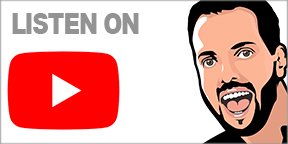






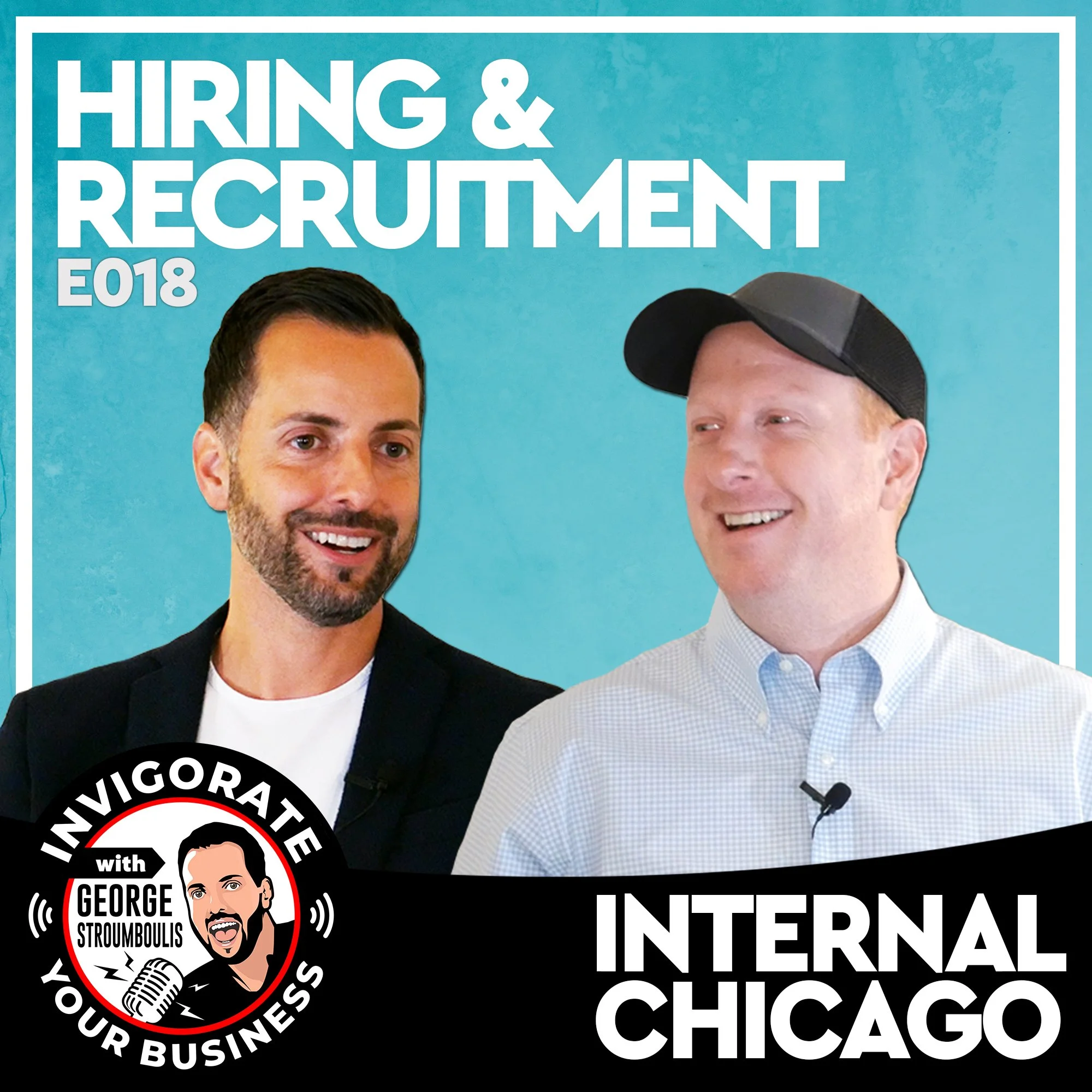
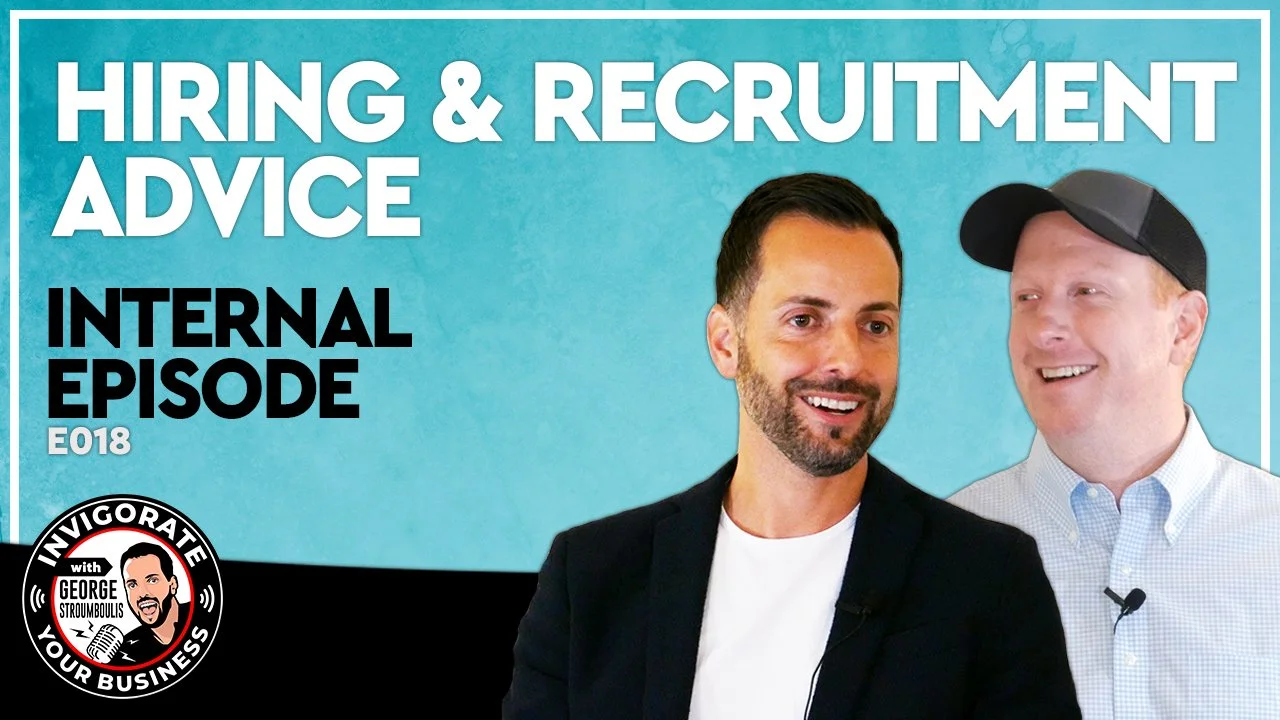
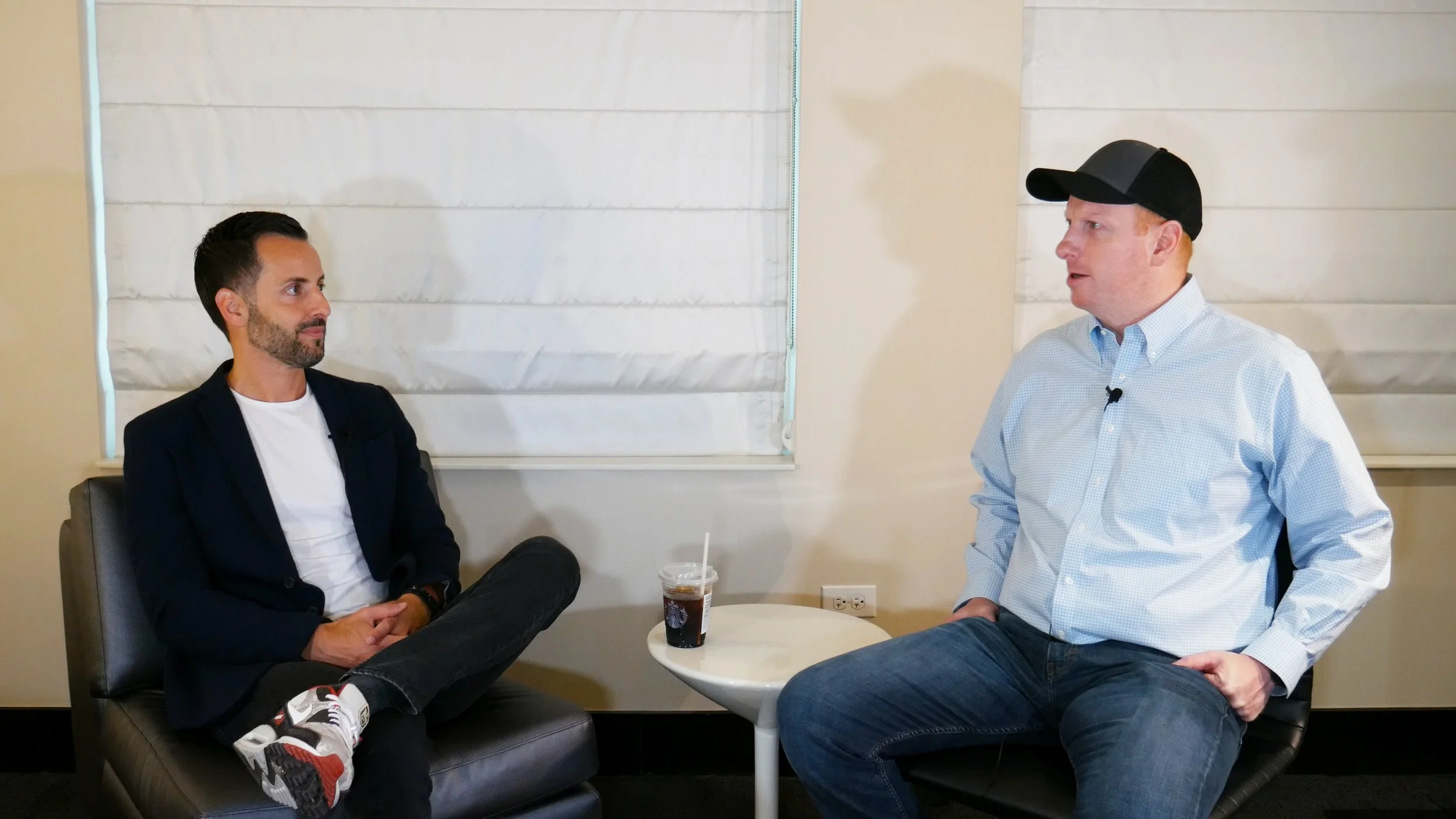
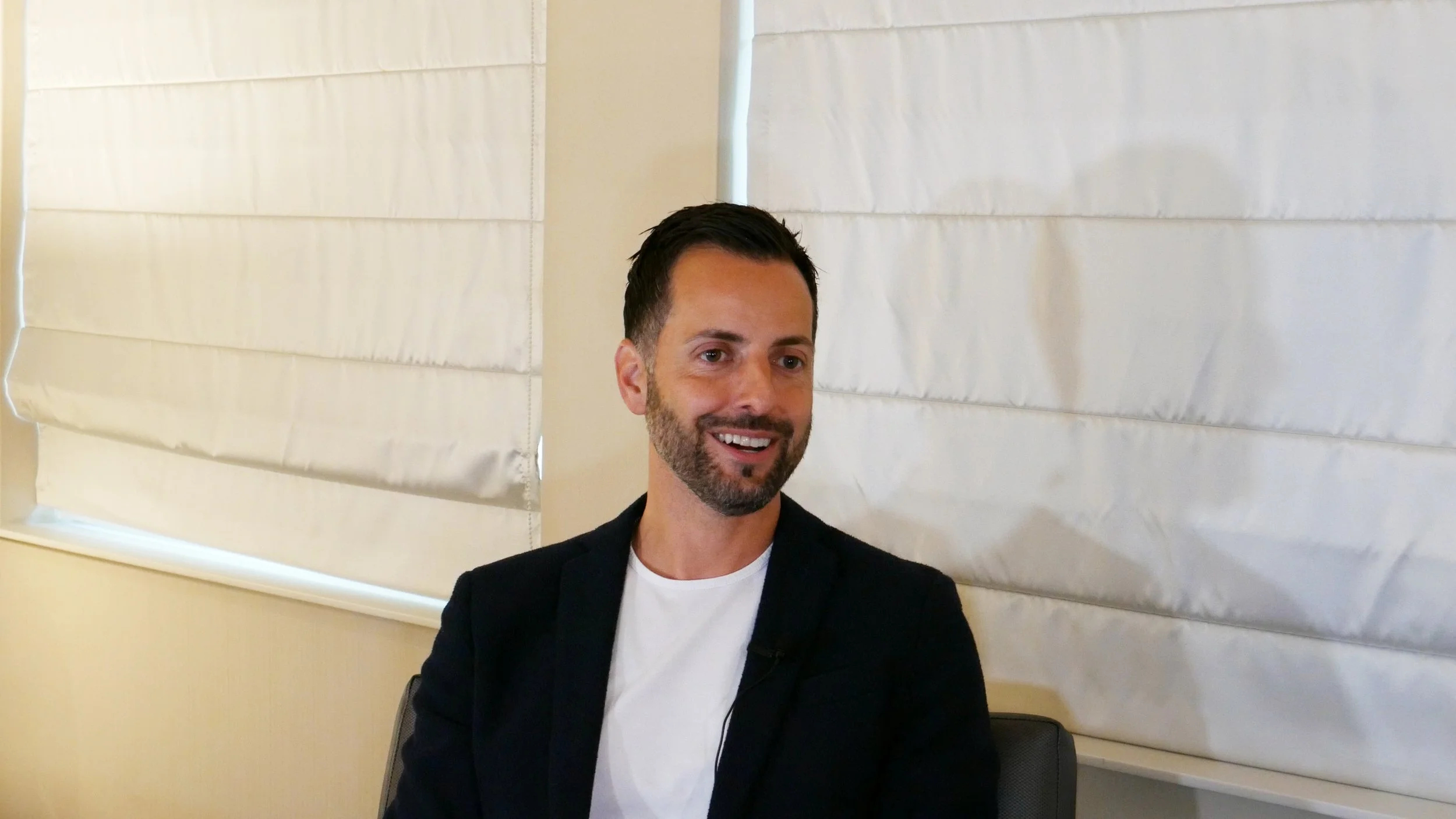
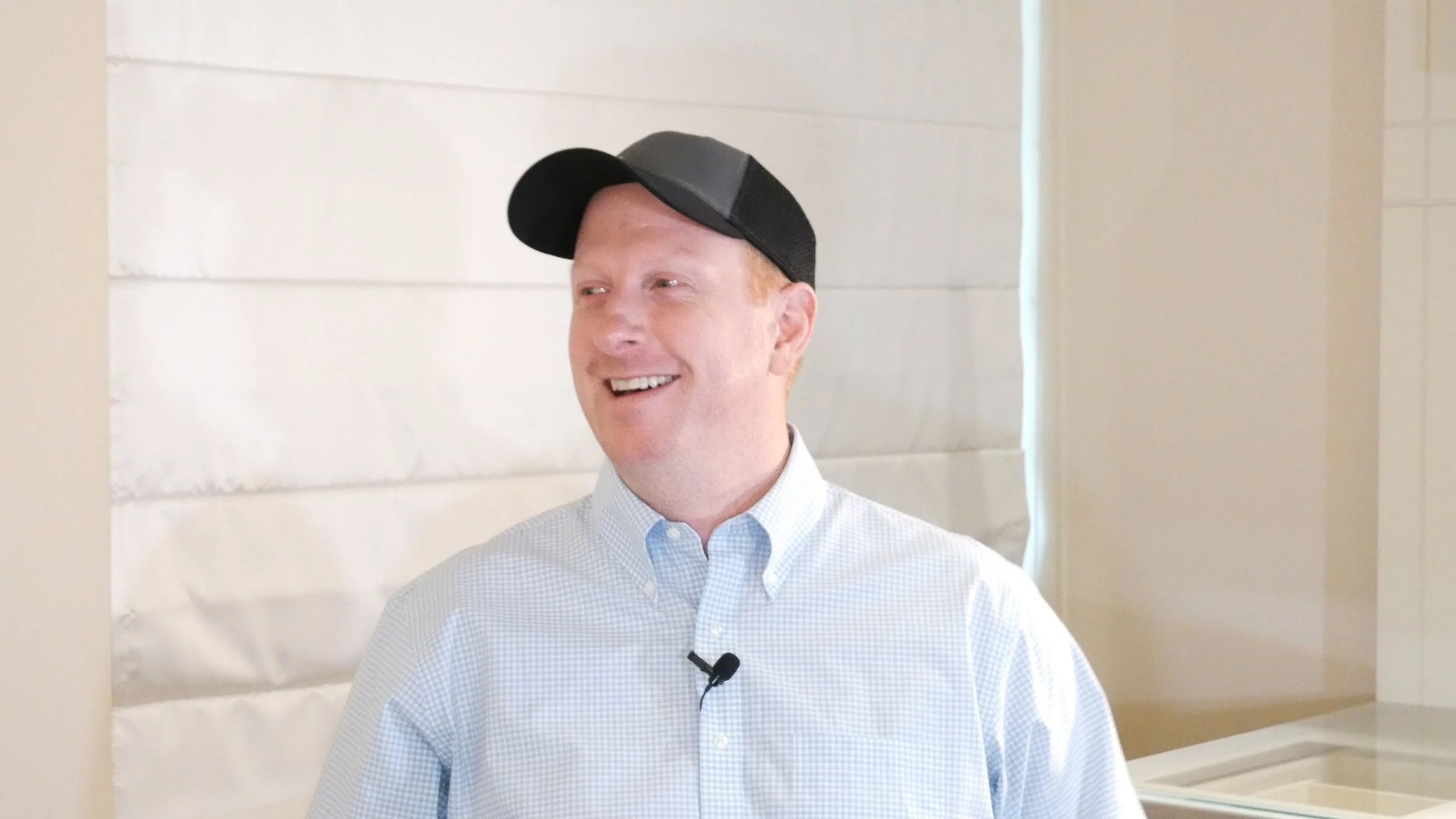
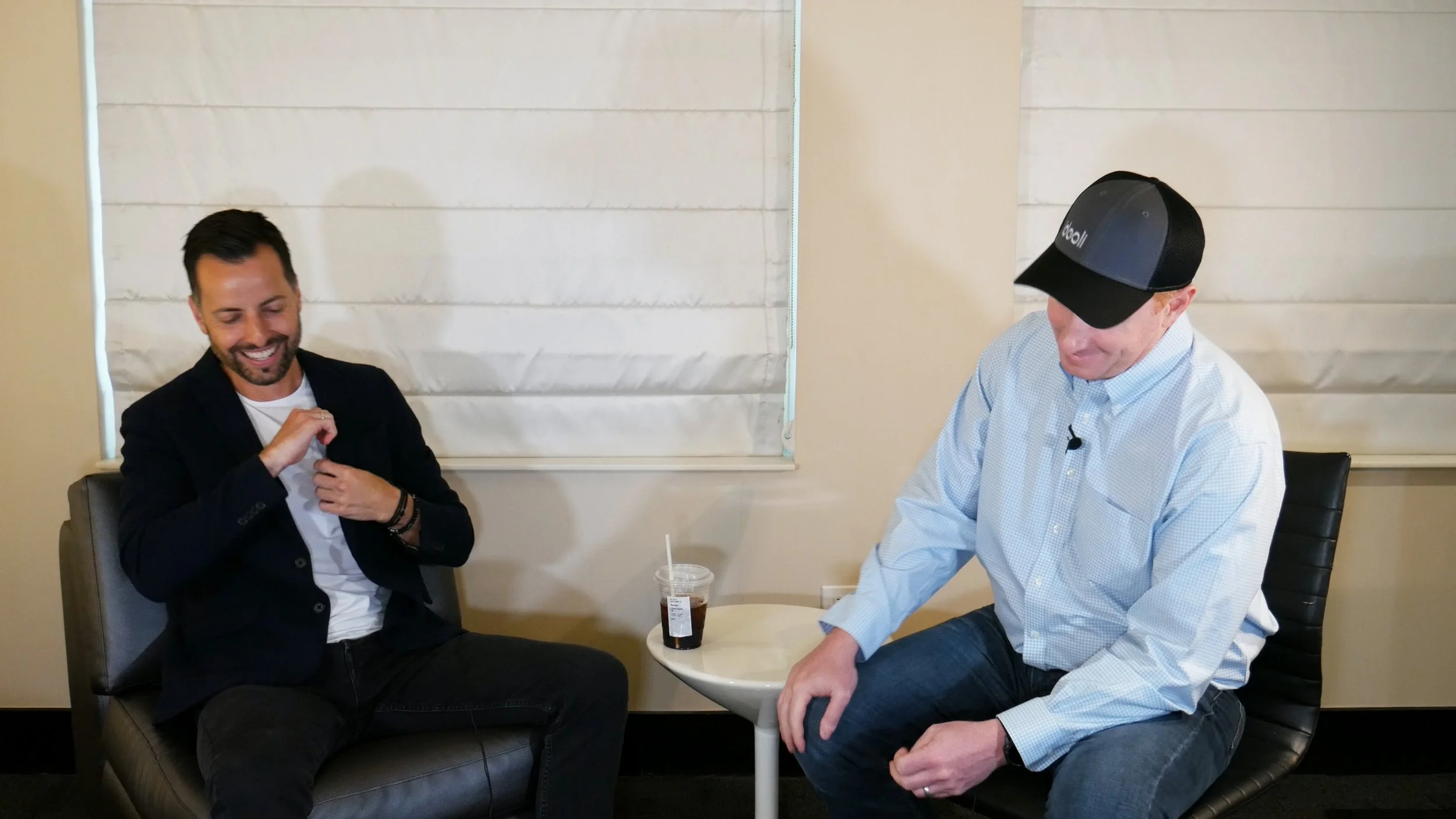
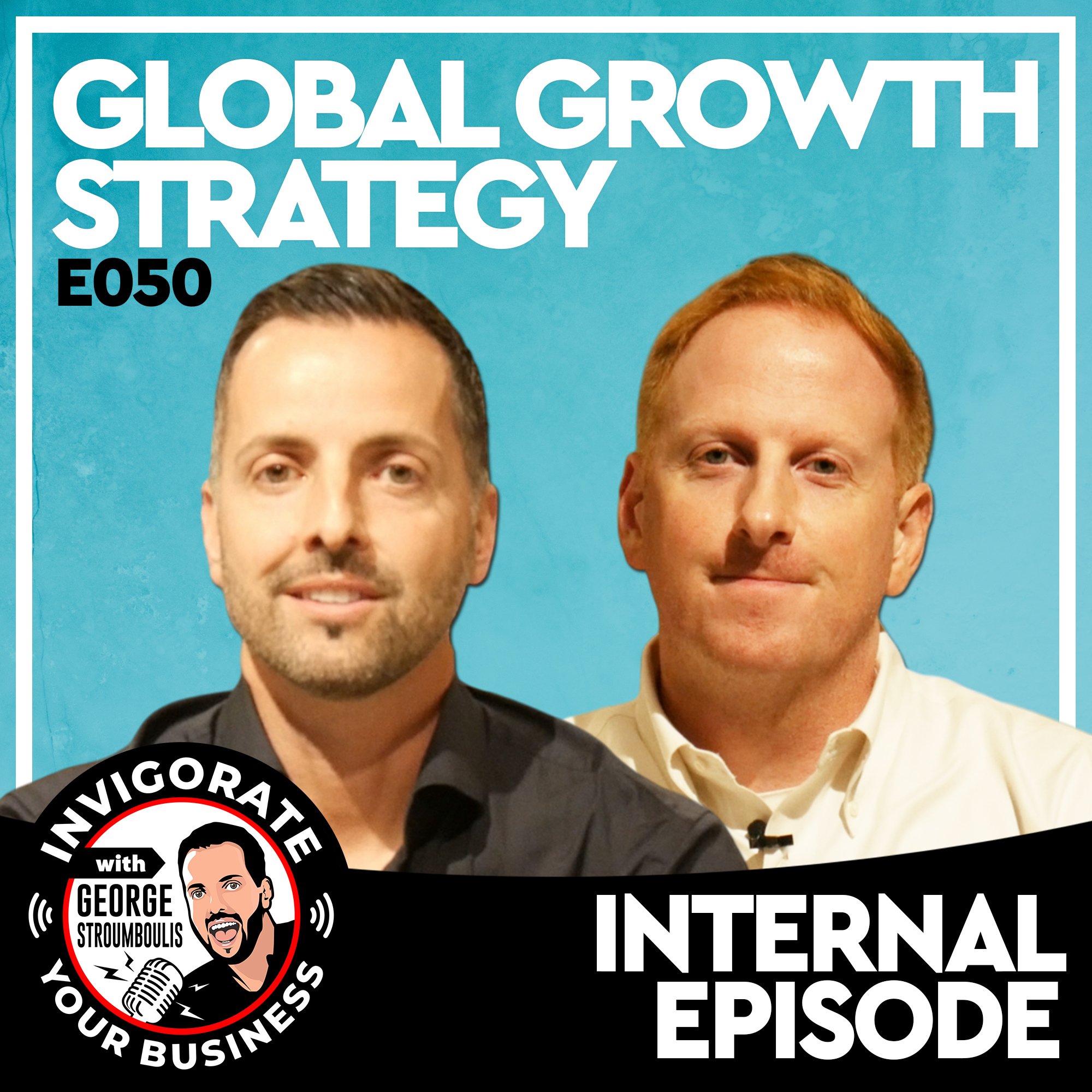

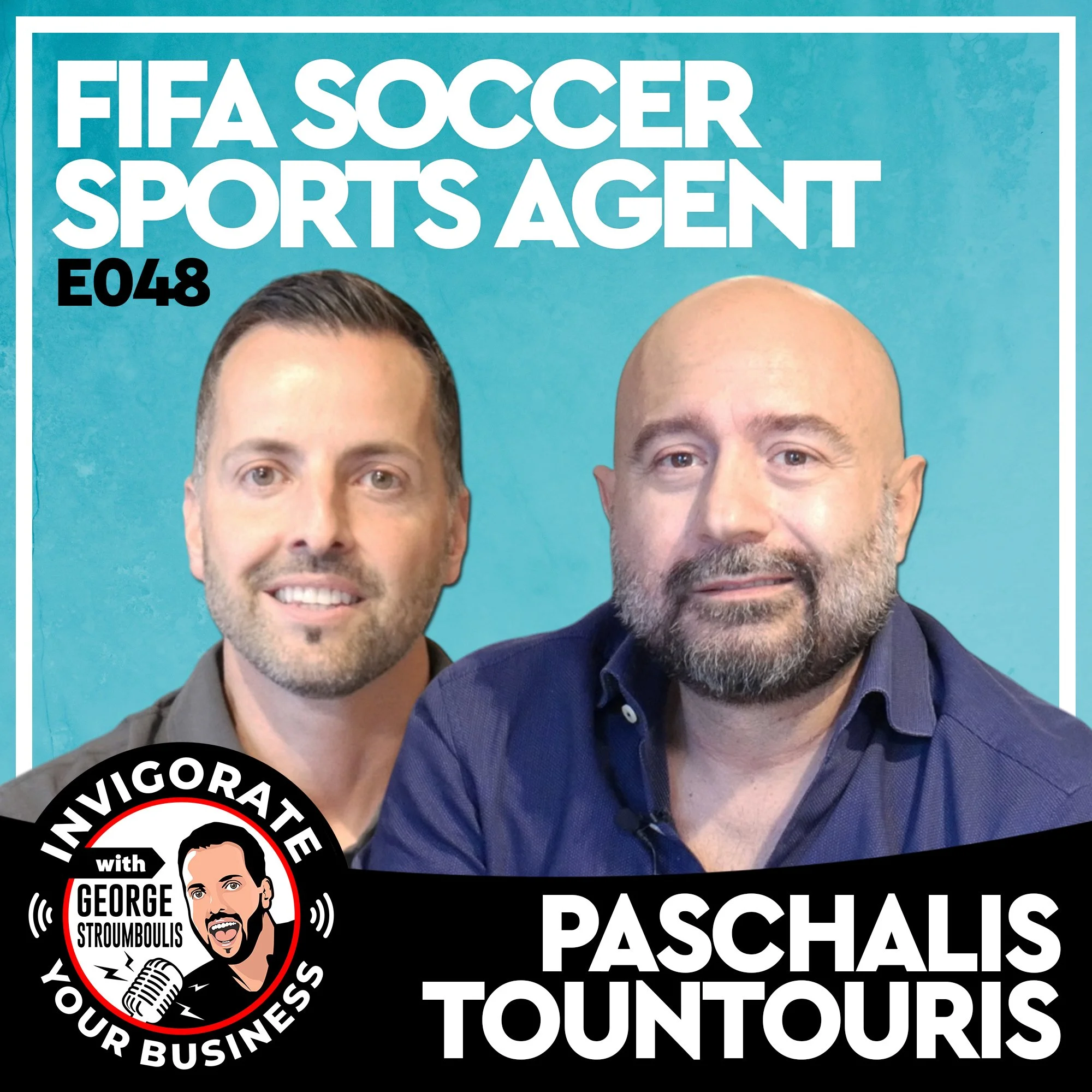
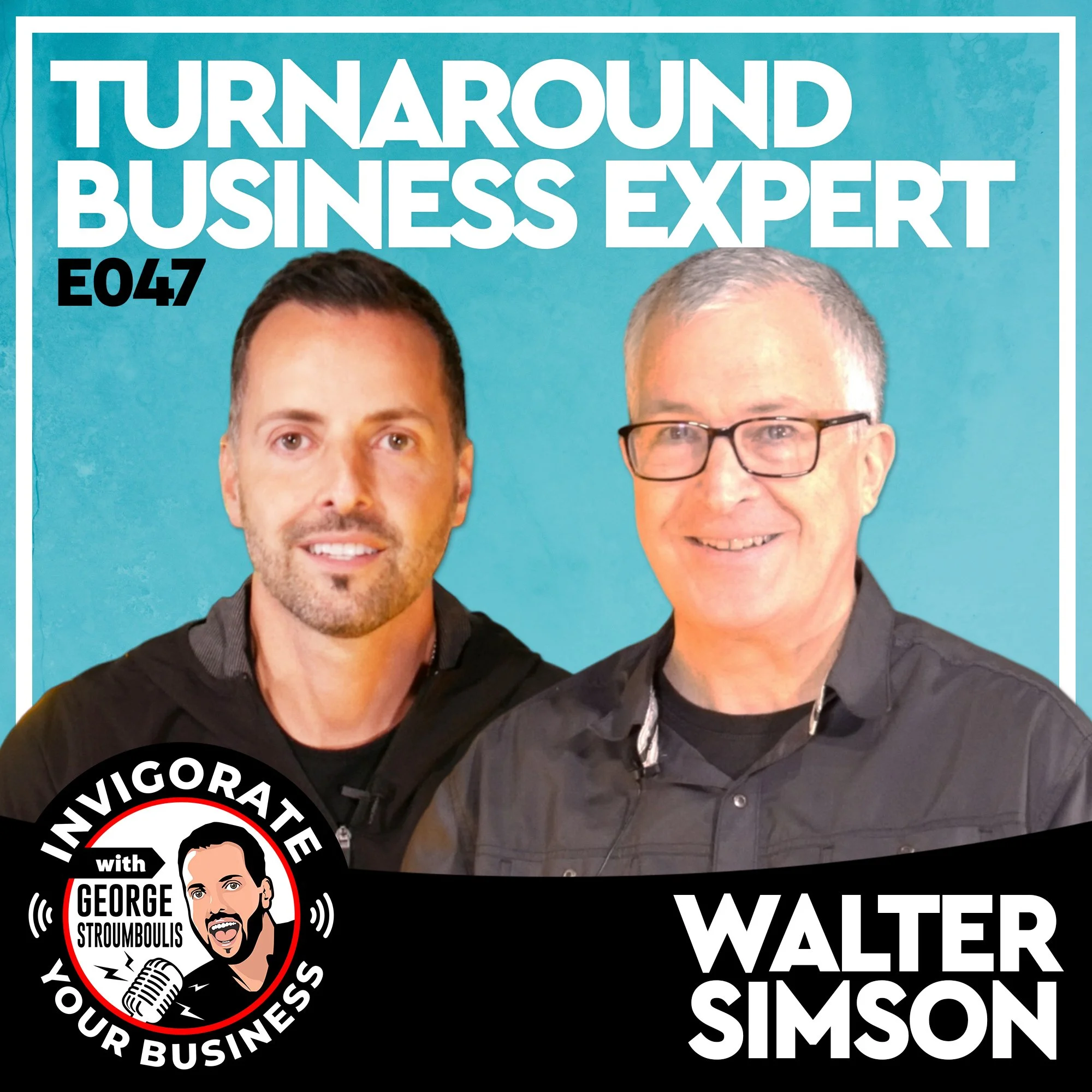
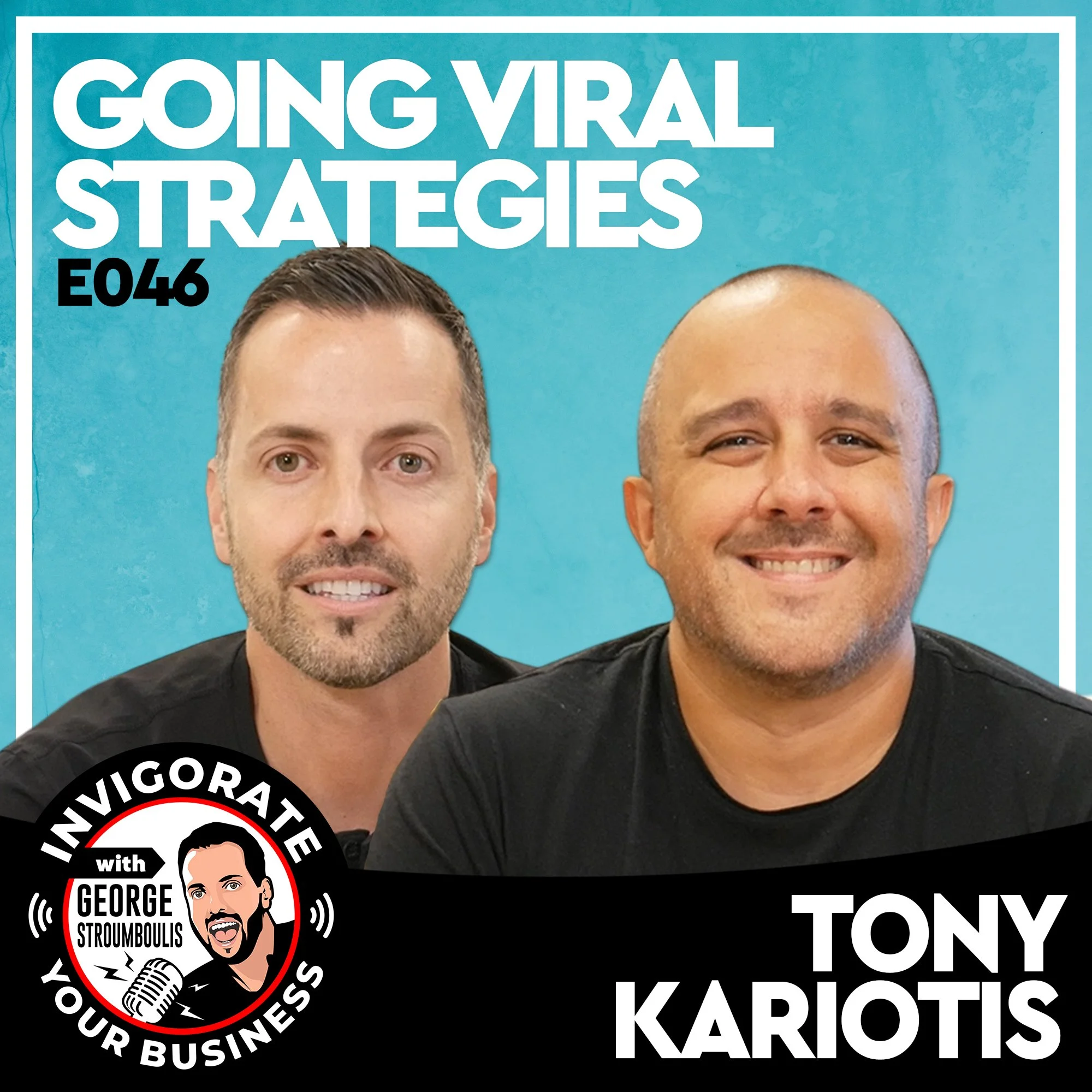

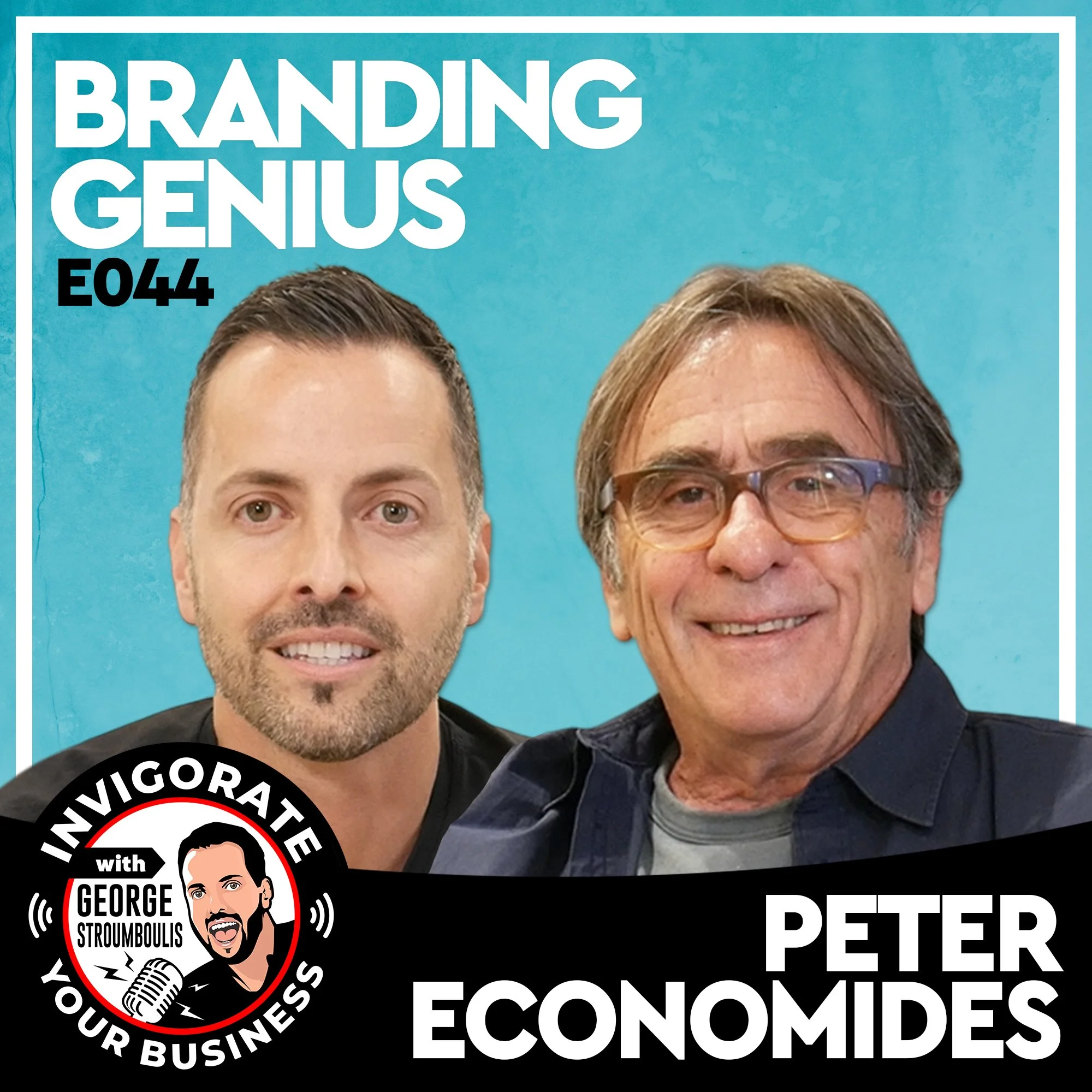
George Stroumboulis sits down with Jim Sogotis in Newport Beach, California on the Invigorate Your Business Podcast to talk about all things financial markets, investments, hedge funds, mutual funds, financial advice and so much more.